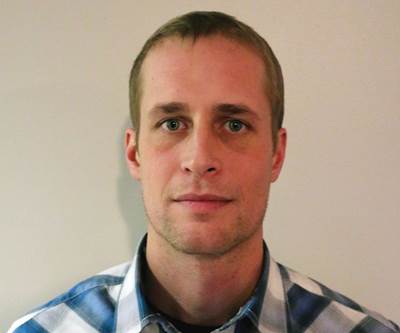
Beanstalk Collaborative Community Wealth (BCCW) CEO Troy Roberts and co-founder Bill Smith have very long careers in manufacturing and a passion for community wealth building. Photo Credit: Beanstalk Collaborative Community Wealth (BCCW).
I’ve said it before and I’ll say it again: Moldmaking is more of a community than an industry. When I heard about a unique approach to a recent moldmaker acquisition, I had to share the story.
Meet Troy Roberts. He is the CEO of Beanstalk Collaborative Community Wealth (BCCW). He and his two partners, Ted Stolberg and Bill Smith have very long careers in manufacturing. Roberts has 35 years of experience in startup, turnaround and rapid-growth environments exclusively in manufacturing. Smith has over 30 years of experience in finance, financial consulting, mergers and acquisitions, and leadership, as well as a family owned manufacturing business that he helped grow to $100 million in sales. Stolberg has 40 years of experience in finance and private equity with heavy involvement in community wealth building.

Tolerance Tool offers 100% electrode inspection with a Zeiss CMM. Photo Credit: Tolerance Tool
Stolberg realized private equity’s buy, roll-up, strip and sell model is broken and is not a viable alternative for smaller businesses owned by families who value their employees and communities. So, he approached Roberts and Smith with a hybrid approach to mergers and acquisitions. Enter Beanstalk Collaborative Community Wealth LLC— a for-profit business with a community focus.
“Our mission is to make sure businesses stay operating and thriving in their communities. Smaller businesses (less than $10 million in sales) are generally too small to get the attention of private equity, and succession to family or management is often not an option, so they have a hard time succeeding the business. Many times, liquidation is the only option and when the business disappears, the local community is negatively impacted,” Roberts says.
Roberts, Smith and Stolberg launched Beanstalk on January 15, 2019… and then COVID-19 hit. As a result, a lot of their acquisition opportunities dried up as businesses suffered financially. “It was a terrible time to start concerning getting deals done, but the silver lining was that this time allowed us to refine what we wanted BCCW to be,” Roberts says.
Instead, they started developing relationships with business brokers, trade association leadership and industry expert advisors. Now their pipeline is beginning to fill up.
Building Strategic Relationships
Manufacturing is very important to the BCCW team and keeping these businesses in their communities is just as important. This is where they believe the private equity model is broken.

The inspection department programs the CNC coordinate measuring machines directly from 3D Solids using Calypso Metrology software. Photo Credit: Tolerance Tool
“Traditional private equity is about raising a fund, rolling up the companies into a larger organization and eliminating all the redundant costs. They don’t plan for the long-term success of the business. They are planning for an early exit with outsized returns, which gives them the track record to raise an even bigger fund to start the cycle again,” Roberts says. On the other hand, BCCW puts their money where their mouth is. Their buy, build and hold model considers the investment required in people, processes and capital equipment for the business to thrive.
BCCW’s pipeline of shops comes through developing relationships with business brokers and their affinity partnerships with the Precision Metal Forming Assn, the National Tool & Machining Assn (NTMA), and their recent involvement with the Manufacturers Association for Plastics Processors (MAPP) and the American Mold Builders Assn (AMBA).
“If we all do our jobs—the seller, Beanstalk and the employees—then the community is the ultimate winner because the business continues to grow as an economic engine in the community.”
“If we don't find sellers aligned with our mission, then we don’t have a business to buy,” Roberts says. All three agree that when identifying the right match, the seller needs to be someone who values their legacy, employees and community. They want to see the business not only continue, but thrive. It’s important to understand what the seller is looking to get out of the business and what the business needs, including investment to sustain and grow the business.
“I tell sellers that we’re not the user-friendly option if you’re just looking to sell the business at the highest price and walk away. We have to collaborate with the seller to see if our ‘buy, build and hold’ model meets the requirements of the seller and the continuing business. We don't ever plan on selling these businesses, which is a huge difference from private equity,” Roberts adds.

Tolerance Tool takes customer CAD files and thoroughly inspects the part to establish any draft or undercut issues. They strive to resolve issues as quickly and efficiently as possible by working directly with the customer. The mold design department takes the previously established part file and uses parametric solids to create fully designed and detailed mold layouts. Once approved by the customer, these designs go directly to manufacturing. NC programming is fully parametric to mold design to optimize the link between design and manufacturing. Photo Credit: Tolerance Tool
Making a Match
BCCW does not limit itself to one type of company either. However, their preferred industry profile consists of smaller manufacturing companies in verticals such as precision machining, metal stampings, tool and die and moldmaking across aerospace and defense, medical, electronics, equipment and proprietary products.
They do not have to be huge companies—$3 to $20 million in sales or $500K+ in EBITDA. Roberts believes that smaller businesses get to a certain size and plateau because that’s all the owner and management team can handle, or they are satisfied with what they’re making and stay at the level. Tactically, those businesses understand what they’re doing but usually have high customer concentration because they’re not actively seeking new customers. They don’t have a strategic plan or a business development strategy.
Generally speaking, smaller businesses haven’t implemented the financial and cost accounting systems to understand where they do and don’t make money. As a result, growth in sales doesn’t necessarily mean a growth in profits. “And two words that always have to go together are growth and profitability. There’s no reason to grow unless it's profitable growth,” Roberts contends.
According to Roberts, the functions usually missing in these smaller businesses include financial and cost accounting management, management development, strategic planning, new business development, management operating systems that encourage employee engagement, key operating metrics and ERP/MRP manufacturing systems.
This is why BCCW values the combination of a good management team whom they can work with—not a broken company, but one where they can add value. Of course, a big part is the employees. BCCW looks for a management team at each company because they don’t want to run these businesses day to day. Instead, they want a team that will embrace BCCW’s value-add proposition. This team may include the existing seller, a combination of their management team and members of the next generation to whom they’ll give equity interest to ensure full engagement.
“If we all do our jobs—the seller, Beanstalk and the employees—then the community is the ultimate winner, because the business continues to grow as an economic engine in the community,” Roberts says.
Case in Point
Tolerance Tool is BCCW's first acquisition—a North St. Paul, Minnesota-based precision manufacturing company providing high-end injection molds to demanding medical device and automotive customers. To support Tolerance’s continued sustainability and growth in the North St. Paul community, BCCW partnered with Platinum Bank, a local community bank, to fund the transaction.
Co-founders Rich White and Tom Hoffer trusted BCCW to protect the business they built and their legacies in the St. Paul community. “We are proud to see Tolerance in the hands of a group whose mission so closely aligns with our wishes to see this company and its workforce continue to thrive in North St. Paul,” White says. “We wanted to see our business continue in the community. Beanstalk has been a valuable partner in helping us exit our business without having to sell out to other buyers who would have pillaged the business and threatened our team's jobs,” Hoffer adds.
Tolerance has a strong management team and workforce. BCCW is committed to investing in people, processes and capital equipment to maintain its position as a high-quality American manufacturer of injection molds. Currently, BCCW is focused on infrastructure building and developing the next generation of leadership from within Tolerance.
To address these areas, they hired an accounting/office manager with MRP/ERP experience, which they will implement this year to help them better understand their core competencies that their customers value, and areas for improvement via investment in people, process and capital expenditures.
“We have incomplete data. We have some benchmark data, but we need to align it. We can’t make decisions without data. An MRP/ERP system is the answer to help us understand our costs because, without it, it’s hard to understand where to invest next,” Roberts says.
BCCW is also performing a gap analysis so they can “put things in place that are currently not there that would allow the company to continue to grow profitably.”
Tolerance is a very lean, mean, multi-skilled team of 18, so when it comes to developing its next generation of leadership, job descriptions become critical. This demands documentation and creating skill maps for each job, which helps establish development plans for staff. For example, Roberts explains that if an employee wants a raise, management will prepare a development plan and work with the employee to increase the employee’s skill level that, in turn, supports increased compensation.
“We are trying to become an alternative idea with our ‘buy, build and hold’ model and hope that others will start trying this approach and continue the manufacturing legacy in this country. That’s our definition of success,” Roberts concludes.
Related Content
Top 10 Topics to Cover During an ISO 9001 Manufacturing Audit
Take a look at this practical hands-on approach to conducting a quality audit.
Read MoreEditorial Guidelines: Editorial Advisory Board
The Editorial Advisory Board of MoldMaking Technology is made up of authorities with expertise within their respective business, industry, technology and profession. Their role is to advise on timely issues, trends, advances in the field, offer editorial thought and direction, review and comment on specific articles and generally act as a sounding board and a conscience for the publication.
Read MoreMaking Quick and Easy Kaizen Work for Your Shop
Within each person is unlimited creative potential to improve shop operations.
Read MoreDynamic Tool Corporation – Creating the Team to Move Moldmaking Into the Future
For 40+ years, Dynamic Tool Corp. has offered precision tooling, emphasizing education, mentoring and innovation. The company is committed to excellence, integrity, safety and customer service, as well as inspiring growth and quality in manufacturing.
Read MoreRead Next
Dealing with the Inevitable: Succession Planning
MoldMaking Technology editorial advisory board member Ryan Katen of Micro Mold Co. shares his perspective on succession planning based on personal experience.
Read MoreHow to Start Planning Your Business Exit
Now is the time to start the planning process for exiting your business whether you plan to exit within the next year or 10 years from now.
Read MoreReasons to Use Fiber Lasers for Mold Cleaning
Fiber lasers offer a simplicity, speed, control and portability, minimizing mold cleaning risks.
Read More






















